By bringing classic storybooks to life, a new exhibit aims to promote a love of reading
NORTH KANSAS CITY, Mo. — With book bans reaching historic levels and libraries becoming increasingly politicized, a permanent exhibit called “The Rabbit hOle” aims to shine a spotlight on the timeless magic of children’s books.
The capital “O” in the title is a nod to the large, round rabbit hole visitors walk through to enter the exhibit. Inside an unassuming former tin factory, visitors make their way down a dust-colored grotto stacked with books squished between towering layers of replica rocks.
They are brought to the purple, glowing rabbit hole with shiny, golden words of the opening lines from famous children’s books on the walls. A swirling galactic clock entices curious minds to enter through the portal.
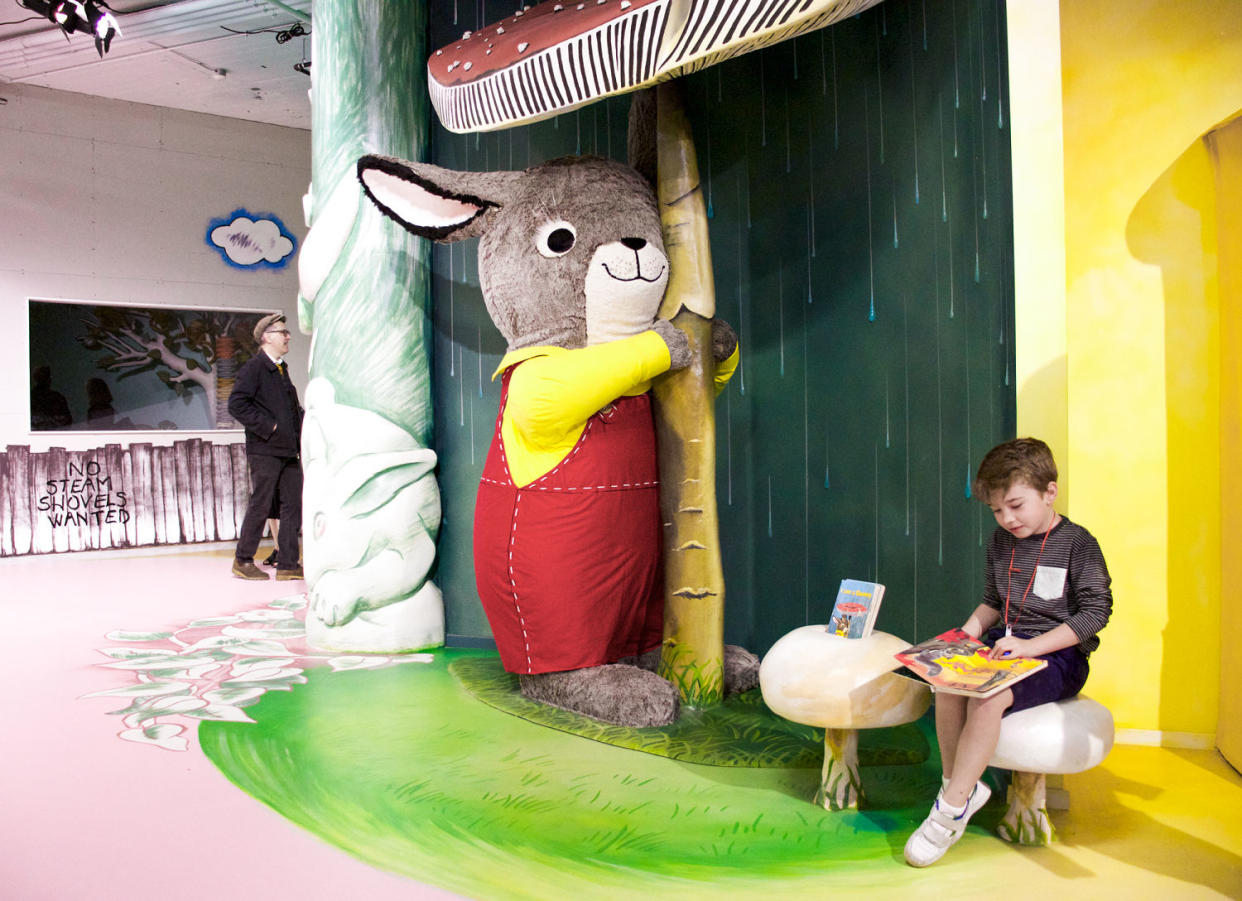
After meandering through the winding twists and turns in the dark, lantern-lit tunnels, visitors land in a vast and vibrant storybook exhibit. Familiar faces such as Madeline and Strega Nona are some of the first characters to greet readers.
A couple of books corresponding to the exhibits are stacked in nearby shelves and are accessible to those who pass by. There are also plenty of lesser-known storybooks sprinkled around the space.
Life-size sculptures of characters from “No, David,” “Harry the Dirty Dog” and “I Am Bunny” have kids flocking to them like celebrities.
The kids eagerly point out the images from the books in their hands, and match items in the exhibits that are in front of them in real life. Parents aren’t too far behind, snapping pictures to capture the excitement.
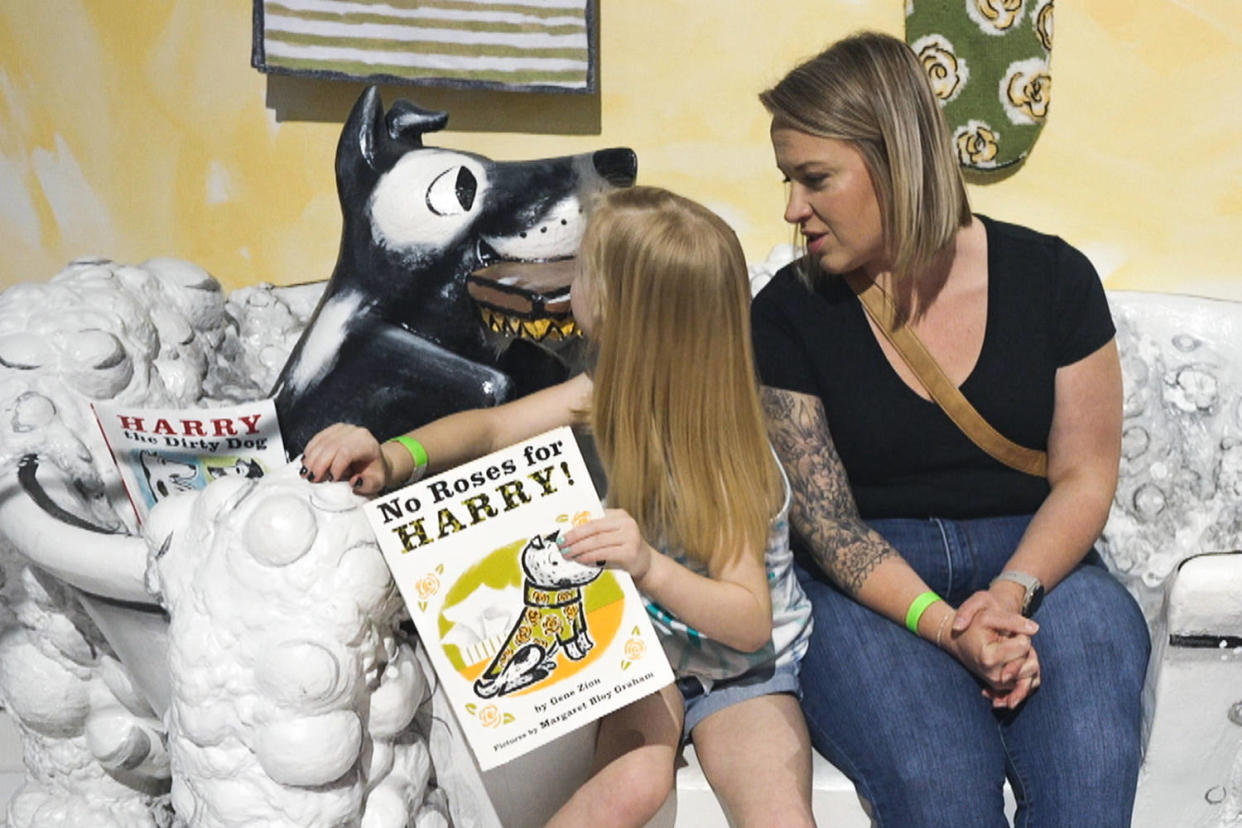
"The Rabbit hOle" was created by Pete and Deb Pettit, who for almost three decades owned a locally renowned bookstore called Reading Reptile but dreamed of something bigger.
“'The Rabbit hOle' is a really unique hybrid of an experience,” Pete Pettit said. “It’s also a labor of love. We’ve been working on it for eight years, and it’s never going to be finished.”
The couple raised more than $15 million in eight years to create the one-of-a-kind showpiece. The capital came from national grants, local foundations and donations from regional families.
The exhibit officially opened April 27, but in the first three weeks of a "soft opening" before then, more than 13,000 people from more than 32 states visited.
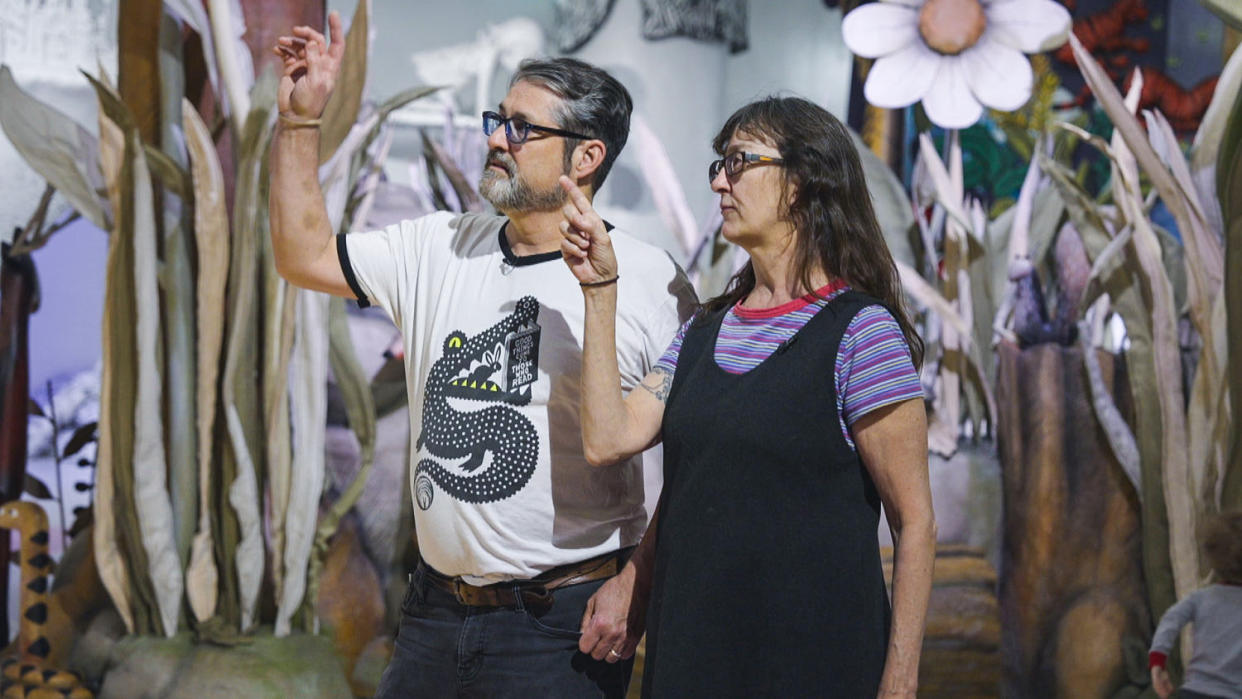
Currently, only the first floor of the 150,000-square-foot building is open, with more than 40 immersive storybook-themed exhibits.
Future plans include a café filled with storybook-referenced food like Strega Nona’s pasta and Bobo’s jum-jills from the book “The Funny Thing.” There also will be rooms for crafts and other activities, the Pettits said, as well as more storybook immersions.
“We were really into trying to get kids to really love reading, rather than being able to read,” Deb Pettit said. “You know, I think they are pretty different things and they’re both important, but I think our love lies in trying to get people to become readers.”
She said she believes people who want to ban or politicize books or “decide who reads what” are not serious readers.
“I think they’re often people that have had poorer or few experiences with actually reading,” Deb Pettit said. “And it’s like they’re afraid of what they don’t know.”
She said she hoped the exhibit would expose new and not-so-new readers to characters, cultures and experiences that might be unfamiliar to them.
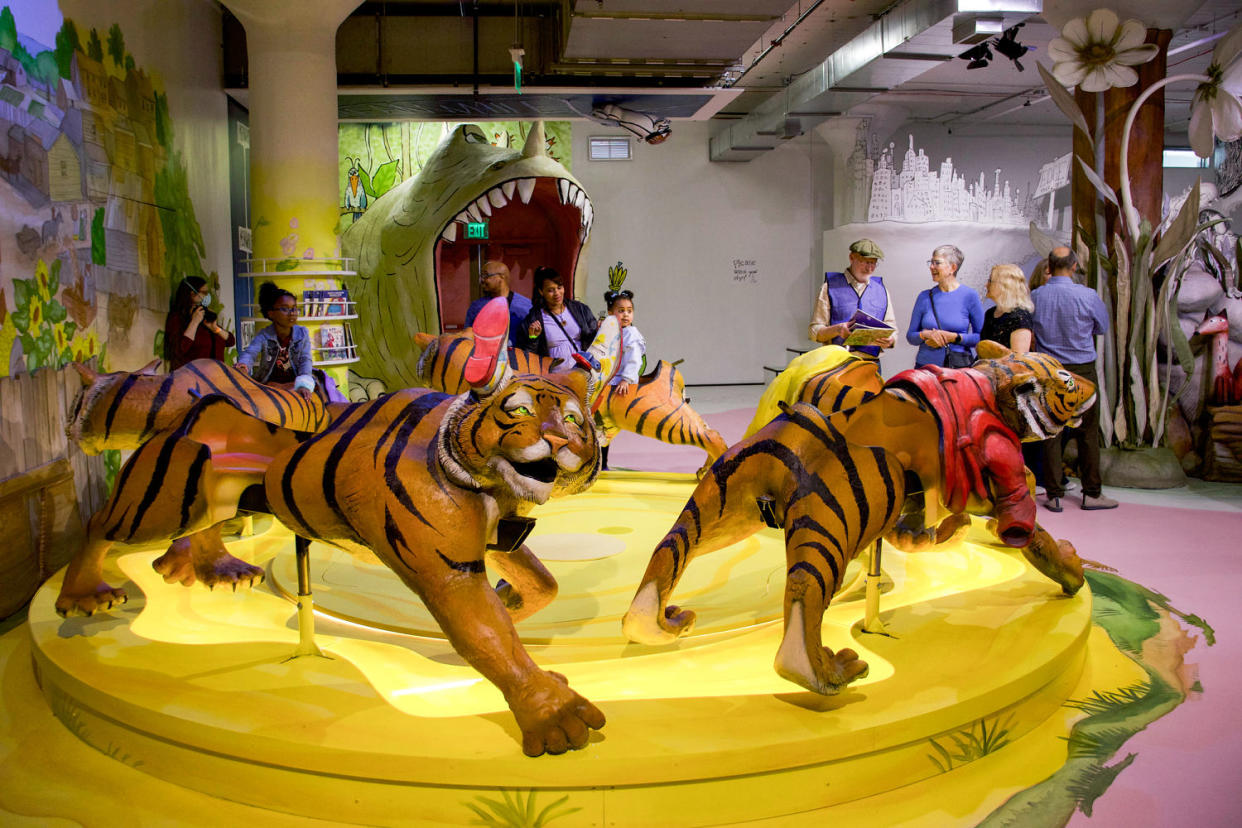
“That’s the beauty about books, nobody’s making people read the book. It’s a choice. And just because I choose not to read something doesn’t mean that what I like or don’t like should be enforced upon somebody else,” she said.
Visitors will not find high-tech touch screens or blaring buzzers inside the exhibit, and Pete Pettit said that was by design.
“We’re only 20 years into social media and the internet,” he said. “People are still figuring out what that is and how it’s impacting people. We’re not ‘anti’ anything but I think there’s an imbalance.”
Deb Pettit said the magic can happen when a book is connected to memory.
“A lot of your memories when you read a book are because you’re sitting next to someone or you’re sitting in their lap,” she said. “There’s a kind of coziness to it, too.”
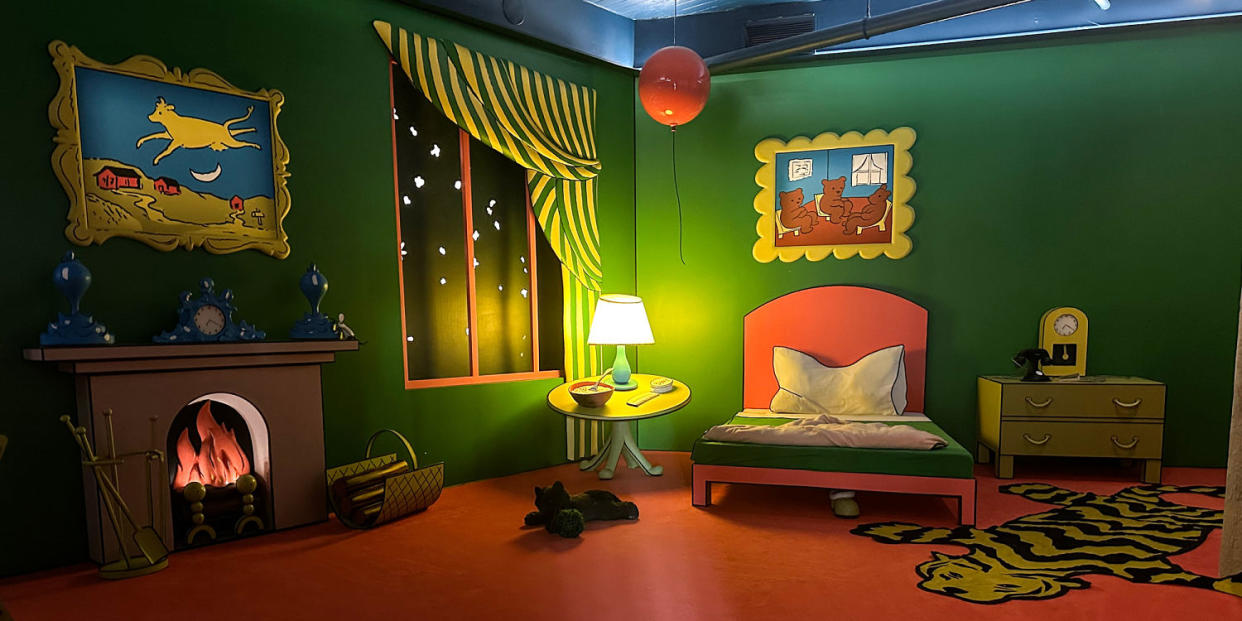
Those memories are triggered in the dimly lit green “Goodnight Moon” room, where a crackling fireplace, a red balloon floating in the corner and a yellow rocking chair are illuminated by the glowing moon outside the window.
The classic bedtime story can help children understand their place in the world and realize that their own personal stories can be treasures, Pete Pettit said.
“The stories that we have here have already been told, and they can be experienced over and over again,” he said. “We want every kid, especially, to know that they have a story that matters.”
